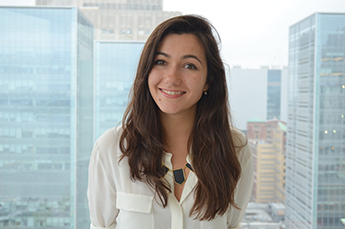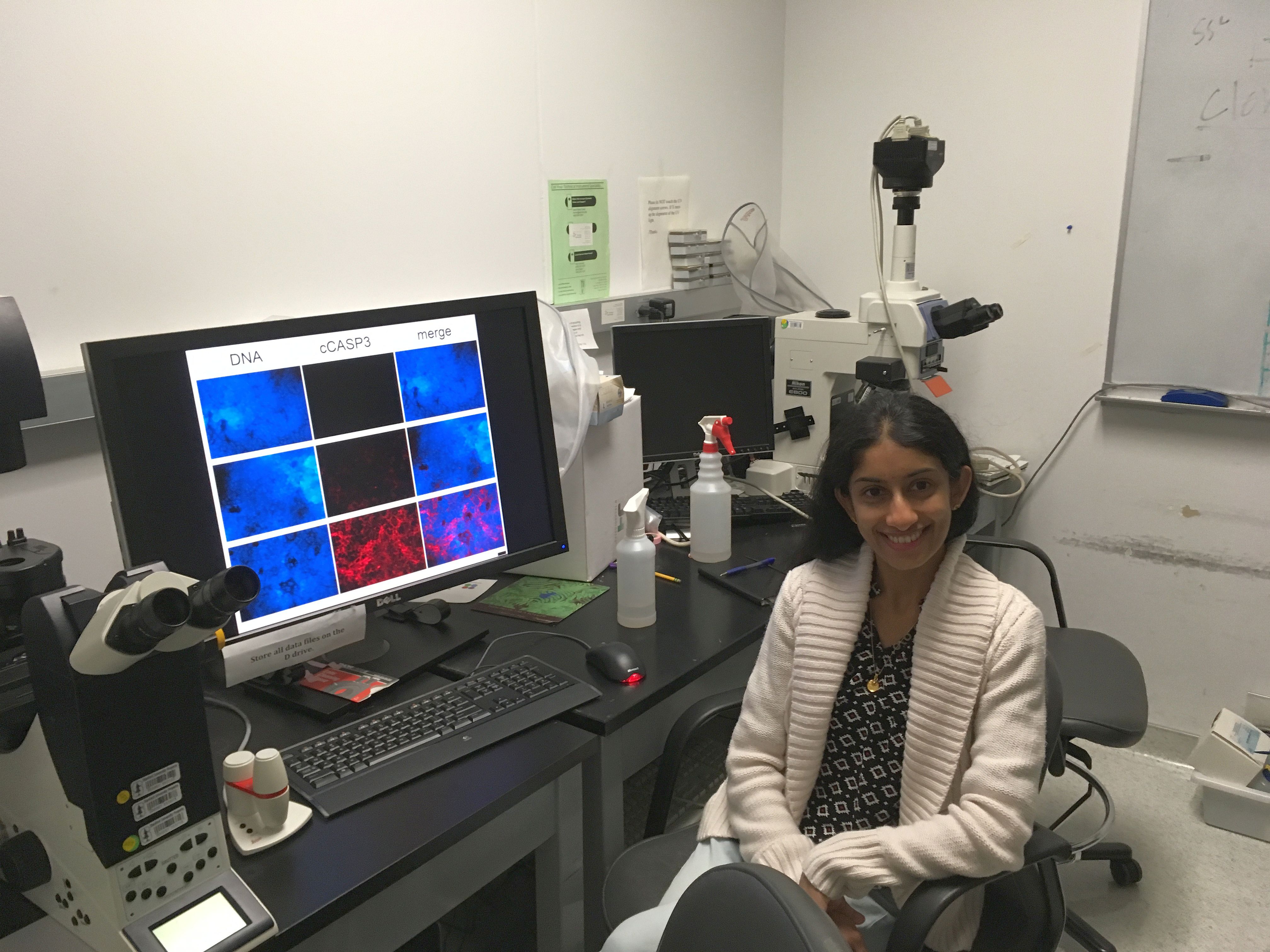Today, on International Women’s Day, we celebrate women in science who work to drive forward The Leukemia & Lymphoma Society’s mission to find blood cancer cures.
This year’s theme, #BeBoldForChange, calls on the masses to help forge a better working world – a more gender-inclusive world.
At LLS, we know it is crucial to support women in science. In 2013, women accounted for less than one third of scientific researchers across the world. Throughout its history, LLS has supported a remarkable generation of women scientists who have led extraordinary advances in blood cancer treatments.
Through our Career Development Program, we are funding some of the brightest women researchers early in their careers. We asked two young LLS-funded investigators to explain what drives them and what advice they have for other women in science…

Anastasia Tikhonova, Ph.D., New York University School of Medicine
Q. What area of research do you study?
For my post-doctoral studies, I chose to investigate how leukemia cells communicate with their surrounding microenvironment. As our understanding of cancer cell biology continues to grow, it has become clear that malignant cells are heavily dependent on cross talk with their healthy cellular neighbors to survive and proliferate.
I never think of leukemia cells as isolated entities, but instead interdependent communities that rely on interactions with other cells to survive. In the lab, we have developed the ability to image live leukemia cells in their native microenvironment, and it is amazing to see tumor cells interacting with surrounding bone marrow cells. One just needs to look at this cellular dance and know that there are many discoveries to be made.
I believe that understanding the molecular mechanisms underlying these complex interactions is a critical component to design effective targeted therapies.
Q. What advice do you have for young women who want to pursue this line of work?
Surround yourself with strong women from different walks of life. In bad times, they will pick you up and push you forward. In good times, they will whole-heartedly celebrate your achievements. And, you will do the same for them.
Q. Finish this sentence for us: If I weren't finding a cure for blood cancers____________.
I would be fighting for women’s rights. As I progress further in my scientific career, I see less and less women. We need to change that.

Srividya Swaminathan, Ph.D., Stanford University
Q. What area of research do you study?
I specialize in identifying novel treatment strategies for two forms of pediatric blood cancer: acute lymphoblastic leukemia (ALL) and Burkitt lymphoma.
Having worked in premier facilities for treatment of childhood leukemia, I have seen how pediatric cancers can take away the best phase of a person's life. My goal is to improve the lives of children afflicted with blood cancers, by identifying safe treatment modalities. This central goal propels me to pursue research every day.
What advice do you have for young women who want to pursue this line of work?
Progress in health science research is often incremental. However, a sequence of incremental research leads to groundbreaking discoveries that have a tangible impact on patients. So, I encourage women to be patient, not buckle under pressure and keep pursuing their research goals.
Q. Finish this sentence for us: If I weren't finding a cure for blood cancers____________.
I would be a chemist trying to build a DNA molecule from scratch.
Today, and every day, we celebrate women in science. Since its inception in 1949, LLS has invested more than $1 billion in cutting-edge research funding many of today’s most promising advances. To learn more about LLS's research investment, click here.
